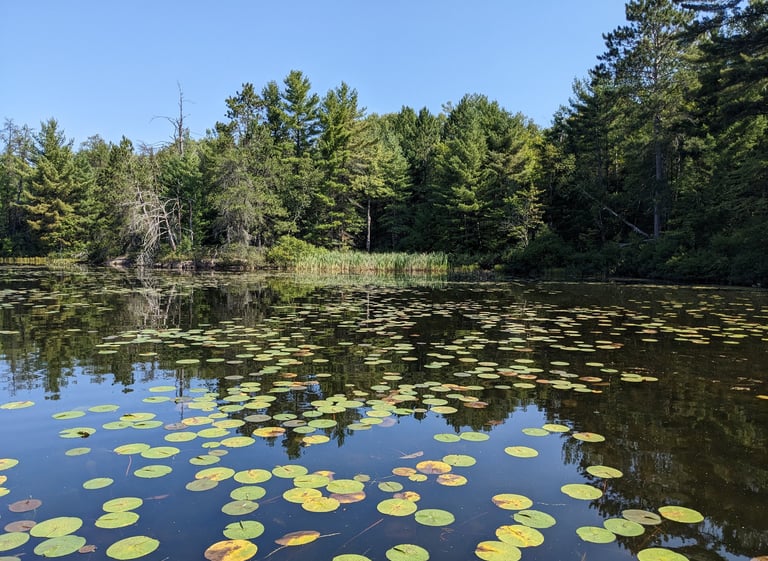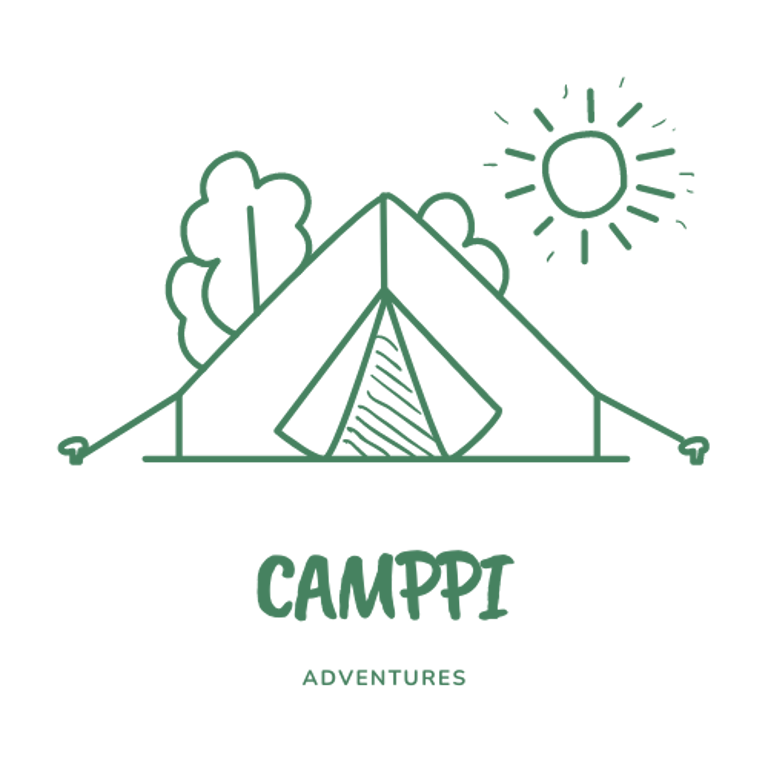7 Tips to Plan Your Summer Camping Trip in Ontario – Even If It's January!
ONTARIO TRAVEL


Hey there, fellow adventurer! I know, I know—it’s January, the middle of winter, and you’re probably buried under blankets or sipping hot cocoa right now. But hear me out: now is actually the perfect time to start planning your summer camping trip in Ontario. While it might seem way too early to think about camping, trust me, getting ahead of the game means you’ll have plenty of time to secure the best spots, gear up, and avoid the summer crowds.
Whether you're a total newbie or just looking for a refresher, I’ve got 7 super simple tips to help you plan the best camping experience in Ontario—let’s get to it!
1. Start by Picking Your Ideal Campsite
Ontario is huge, and it’s packed with some of the most stunning national and provincial parks in Canada. But with so many options, it’s easy to get overwhelmed. Start by narrowing down your list of potential campsites based on what kind of experience you want. Do you love canoeing? Head to Bon Echo Provincial Park or Killarney. Love waterfalls? Try Chutes Provincial Park or Sauble Falls. Want to roast on the beach? Try Pinery Provincial Park, Sandbanks, or Long Point. Want something near a larger body of water? Try Bruce Peninsula National Park.
In the winter months, it’s a great time to browse through the Ontario Parks website or the Parks Canada website, which both let you book campsites online. Make sure to check out the specific park’s activities (hiking, fishing, swimming) and whether they have amenities like showers, flush toilets, or even Wi-Fi if that’s your thing. Ontario Provincial Parks start booking 5 months in advance whereas Canada National Parks start booking in mid January, so to avoid disappointment, don’t wait until June to book!
2. Consider the Weather (and What It Might Be Like in July)
Ontario summers can be hot and humid, but they’re also known for sudden thunderstorms. In January, the forecast might be nowhere near your mind, but it’s a good time to start thinking about the kinds of temperatures you might deal with. Days can reach the 30°C (86°F) range or higher range, and nights can drop to 10°C (50°F) or lower in some areas.
Make sure you pack accordingly—lightweight, moisture-wicking clothes for daytime activities, and warm layers for chilly evenings. If you’re a first-timer, consider investing in a three-season sleeping bag that will keep you warm but won’t leave you drenched in sweat.
3. Start Thinking About Gear
Even though it’s freezing outside, this is the best time to figure out what gear you need for your trip. Do you already own a tent, sleeping bag, or stove? If not, this is the perfect moment to start shopping for high-quality, affordable gear. Don’t worry—you don’t have to spend a fortune on camping equipment! Many retailers have sales during the off-season, and second-hand stores often have gently used tents, backpacks, and sleeping bags.
Make a checklist of everything you’ll need: tent, sleeping pad, cooking gear, camp chairs, cooler, and so on. Start slowly purchasing things now so you can get the good deals before the summer rush.
4. Check Out Campsite Reviews and Tips
There are a lot of online communities and forums where fellow campers share tips and reviews on Ontario parks and campsites. Sites like Google Reviews, TripAdvisor, Camping with the Coles or social media platforms such as Reddit or Facebook camping groups are great resources to get the inside scoop from real people who have been there. They’ll share everything from the best spots for star-gazing to hidden trails and the least buggy campsites.
If you're unsure whether a park or campsite is a good fit, take a peek at these reviews and make sure to check if it’s beginner-friendly.
5. Prepare for Bugs (Yup, They’re Coming)
Okay, Ontario summers are gorgeous, but let’s be real: the bugs can be relentless. In January, it’s easy to forget about the swarms of mosquitoes, black flies, and ticks that are part of the Ontario wilderness. But you’ll definitely want to be prepared.
Pick up some bug spray (with DEET or a natural alternative) now so you don’t have to scramble for it come summer. Also, invest in a good set of lightweight, long-sleeve clothing or a bug net for your head. Trust me, you’ll be happy you did.
6. Research Local Wildlife
Ontario’s wild side is one of the coolest things about camping here, but it’s also something to respect. Whether it’s bears, raccoons, or curious deer, wildlife will probably make an appearance, especially in the more remote areas. In January, take some time to read up on the animals you might encounter.
For example, bear country can mean you’ll need to store food in bear-safe containers or hang it up high. If you're camping near lakes or rivers, be aware of beavers, otters, or even moose. Understanding their habits and how to safely store food and trash is key to having a worry-free trip.
7. Get Your Pack (and Your Mind) Ready Early
Camping is about relaxation and adventure, but for beginners, the experience can also be a little nerve-wracking. Getting your mind and body ready early will make all the difference. If you’re new to camping, try setting up your tent in your backyard or taking day hikes on nearby trails in the winter months. Practice cooking meals on a camp stove, testing out gear, or learning how to navigate with a compass.
In the summer, you’ll feel more confident if you’ve already worked out any kinks. Plus, you’ll get that satisfying feeling of being well-prepared—and when you're out in the wild, that’s a pretty amazing thing!
So, there you have it—7 tips to help you plan your summer camping trip in Ontario, even in the middle of January! Trust me, when the warm weather hits and you’re heading into the wilderness fully prepared, you’ll be glad you started planning early.
